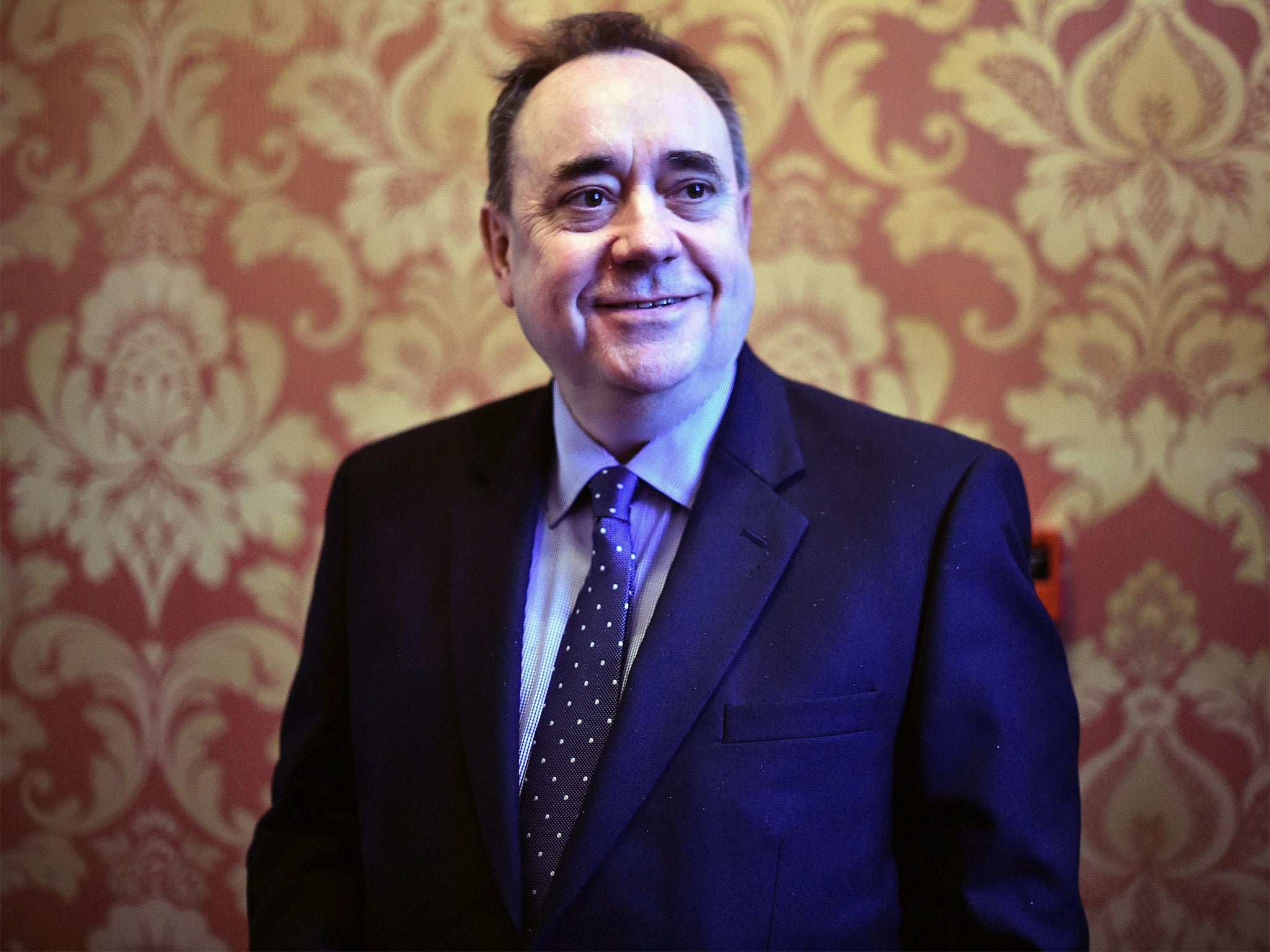In the Scottish independence referendum, The Independent trusted the reader to decide
'I would urge readers of The Independent to follow it online and into the future'

Your support helps us to tell the story
From reproductive rights to climate change to Big Tech, The Independent is on the ground when the story is developing. Whether it's investigating the financials of Elon Musk's pro-Trump PAC or producing our latest documentary, 'The A Word', which shines a light on the American women fighting for reproductive rights, we know how important it is to parse out the facts from the messaging.
At such a critical moment in US history, we need reporters on the ground. Your donation allows us to keep sending journalists to speak to both sides of the story.
The Independent is trusted by Americans across the entire political spectrum. And unlike many other quality news outlets, we choose not to lock Americans out of our reporting and analysis with paywalls. We believe quality journalism should be available to everyone, paid for by those who can afford it.
Your support makes all the difference.Where would we be without journalism?
Our planet would be a smaller place. A darker place.
It serves to fuel our sense of injustice and provides us the tools with which to fight it.
It carries the voices of people in joy and tragedy. It maintains a dogged pursuit of the truth in a world which moves ever faster. It chronicles a wider range of issues against a social-political backdrop which has never been so complex and changeable.
John Pilger once wrote of Edward Smith Hall, a fiercely principled Australian independent editor who first published The Sydney Monitor in 1826, under the brutal conditions of the fledgling nation. He was regularly dragged before tribunals and jailed for his protestations, but continued to edit his weekly eight pages via the light filtering through the bars on his cell window.
Hall said that: “journalism should be the voice of the people… Not the trade of authority,” and only two decades after his death, almost 150 independent publications had blossomed across Australia.
And never has there been a time like today, where the voices of the people can be heard and circulated so widely. The internet provides a pulpit from which anyone can transmit their opinions. In many ways, this is a wonderful thing. Admittedly, there are those who abuse this freedom, but the potential for positive exchanges of information and debate drowns out the mewling of trolls and disgruntled keyboard-warriors.
Yet the unending realm of the internet has signalled the end of news-circulation as we know it.
On one hand, it has expanded the arm of reportage, the speed by which facts can be relayed and the methods news can be delivered.
On the other, it has created a morass of funding which in turn broadsided the concept of the newsroom and limited the resources of a once towering industry.
Though the pen is mightier than the sword, the shield arm of journalism has been battered by its situation. The Fourth Estate has been in many ways, undermined, and this carries risks. Whilst I am sure that the atmosphere within publications who are on the brink is excruciating, there can be no excuse for a degradation of journalistic integrity, quality and choice.
The Scottish independence referendum was a perfect example of the ways in which journalism has faced, embraced and been tested by change.
Never had there been a political situation in the country like it. The speed and significance of every moment of the campaign was reflected by the coverage. In some ways, it was not journalism’s finest hour, but the rise of new media provided a fascinating glimpse of the possible incarnations of news delivery which lie ahead.
And The Independent was there, amid the scrum. I recall an interview in the aftermath with Chris Green, following my election to Westminster. The resulting article was an example of independent journalism as it should be. I was questioned over aspects of the referendum and what came to pass and my responses were charted down.
I reference the article in question because - against a topic which was, and is, very much still white hot - the Independent trusted the reader to decide. It provided the information, and clearly identified the journalist’s line of questioning, without a degree of bias from either side.
Writing like that serves to educate and inform, not merely to administer a lazy adrenaline shot to opinions already formulated. The reader is left with the responsibility of drawing their own conclusions. And they deserve that responsibility.
Going back to the referendum, the public proved, spectacularly, that they were more than capable of processing the complex information which swirled around the independence argument. I’ve fielded tougher questions on the economy from taxi drivers and students than I ever have from any journalist.
It is therefore a great shame that the Independent will disappear from the shelves. I anticipate that this will be a fate shared by many newspapers. But it is not the end. It is not even the beginning of the end.Journalism is undergoing a metamorphosis. At present, it is still figuring out how to best capture today’s zeitgeist, but will emerge from the ashes of what it was reformed and reinvigorated.
Our news may never again be delivered to the concise clip of an Underwood No. 5, but I for one await whatever forms it takes with optimism. I would urge readers of The Independent to follow it online and into the future.
Join our commenting forum
Join thought-provoking conversations, follow other Independent readers and see their replies
Comments